ÌYÁ ‘Ẹ (YOUR MOTHER)
This is a very offensive gesture, which is equal to the Western gesture of showing the middle finger to someone. All fingers are spread out as wide as possible (“ìyà ìka”) while the hand points into the direction of someone, who clearly sees the palm of the hand. One hand or both hands can be used, while shouting “ìyá ‘ẹ”, in English “your mother”. If you want to be more creative you could also use “baba ‘ẹ” or any other close person. The meaning is equal to “f*#% your mother!” It is also called “waka” among the Yorùbá, borrowed from Hausa language. One could immediately answer with the same gesture while shouting “Títí ‘ẹ ni!”, “This is yours!”.
GBÉRÈ (PRAISING)
“Gbérè” is an Ẹ̀gbá Yorùbá expression and means “splendid” (Abraham’s dictionary) or “hail, be strong” (Agwuele). It can be uttered while praising a person, what is an important part of Yorùbá culture, read our article “The Art of Oríkì”, about traditional praise hymns for Ọ̀ṣun (with mp3). The hands are formed into fists and the arms are stretched upwards above the head. With short movements bending the elbow the fists are moved up and down repeatedly into the direction of the person being praised. One or both hands can be used. “Mo n gbérè fún kábíyèsí” could accompany this, “I am praising the king”.
JẸ ÌKA (EATING THE FINGER)
In Yorùbá culture biting on the index finger is a gesture of sorrow and regret, “àbámọ”. Widespread sayings exist, that refer to this gesture, like “Ṣe kíá kí o má bá fi ìka àbámọ kan ẹnu!”, “Be quick so that you don’t put the finger of regret to the mouth!”. With this gesture one could utter “Ti n bá mọ…”, “Had I known…”. Attentive people around are likely to give comfort to the one biting his or her finger.
ẸNU NÍNÀ (MOUTH POINTING)
Various manual gestures exist in Yorùbá culture to point into a direction. A great article is “Pointing the Yoruba way” by Olanike Ola Orie, which includes dozens of photos. Most of them are performed with the hands, but there’s one eye-catching exception I want to mention here. “Ẹnu nínà” literally means “mouth pointing”, in English it would be called lip pointing and is usually done with closed lips. It looks like the gesture that symbolizes a kiss in the West, both lips protrude and thus “point” into a direction. It can be combined with a head, eye or hand pointing movement, see the next chapter. It is used rather secretly, as it is considered inappropriate in the presence of elders. Mouth pointing can be used to mock someone afterwards, but it can also just indicate a direction.
ṢE YẸ̀YẸ́ (RIDICULING)
This is the Yorùbá public way to express one’s disbelief of a statement or to make fun of somebody, who can feel seriously offended by this complex set of negative gestures. It can be shown directly to another person, face to face, or in a group of people to more than one person. It is a very critical, non-verbal comment on the behavior or statement of another person and is humiliating someone who is present. Central for the “ṣe yẹ̀yẹ́” is the up-and-down movement of the nose, called “imú yíyín”. While or after doing this, the face is usually turned to one side, away from the person being ridiculed, in Yorùbá called “mọ́njú”, “looking away contemptuously”. The eyes can be rolled or in “cut-eye” technique point sideways and downwards into the direction in which the head is turned, as an effective visual “putting-down” of the criticized individual. Before one starts to “yín imú”, a small lip pointing gesture can make it clear to the other people whom you are going to “ṣe yẹ̀yẹ́”.
 Ọmọ Oòduà Naija Gist | News From Nigeria | Entertainment gist Nigeria|Networking|News.. Visit for Nigeria breaking news , Nigerian Movies , Naija music , Jobs In Nigeria , Naija News , Nollywood, Gist and more
Ọmọ Oòduà Naija Gist | News From Nigeria | Entertainment gist Nigeria|Networking|News.. Visit for Nigeria breaking news , Nigerian Movies , Naija music , Jobs In Nigeria , Naija News , Nollywood, Gist and more

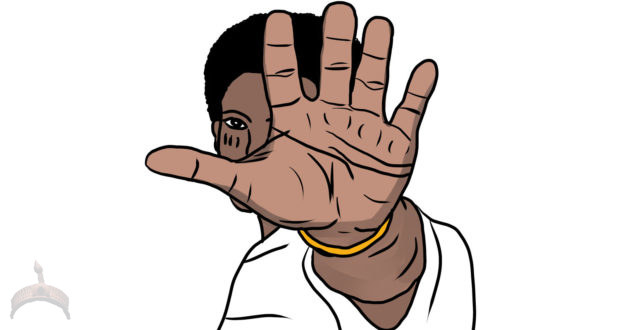




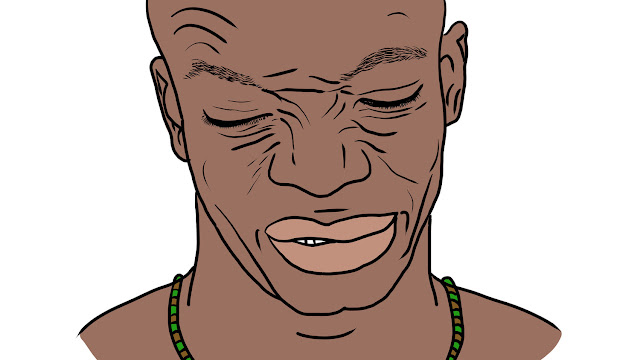

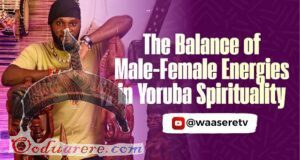


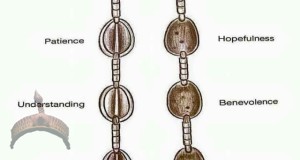


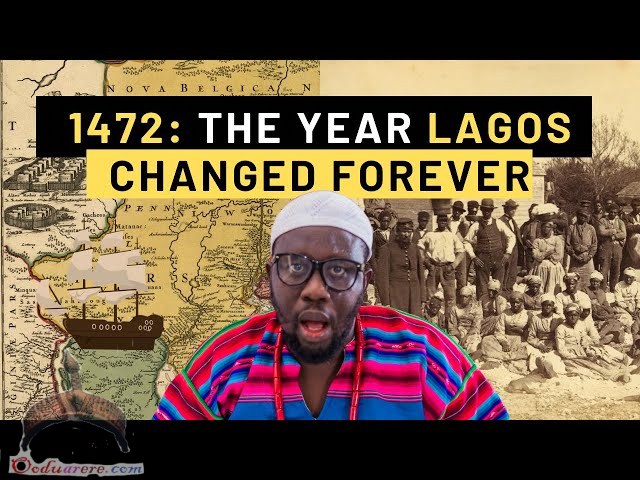
(Y)